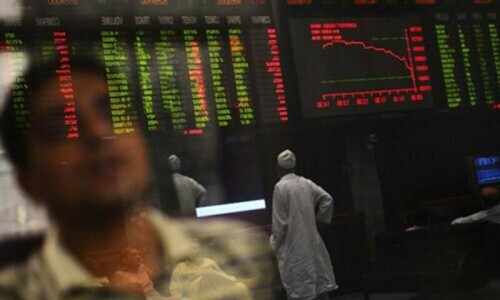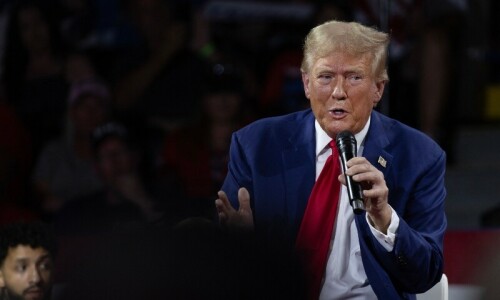WASHINGTON, Oct 10: The United States is likely to remove North Korea provisionally from a terrorism blacklist to try to salvage talks aimed at ending Pyongyang’s nuclear program, a source close to the negotiations said on Friday.
“It’s probably going to happen,” said the source, who asked not to be named, when asked if Washington was weighing the provisional removal of North Korea from the U.S. list of state sponsors of terrorism, which imposes a range of sanctions.
The Bush administration has been scrambling in its final months to save a six-nation, aid-for-disarmament agreement with secretive and impoverished country that it hoped to claim as a rare foreign policy success.
Under the broad accord struck in 2005 between North Korea, South Korea, China, Japan, Russia and the United States, Pyongyang agreed to abandon all nuclear programs in exchange for potential economic and diplomatic benefits.
Under a subsequent pact, the United States suggested it would remove North Korea from the terrorism list in exchange for Pyongyang providing a “complete and correct” declaration of all of its nuclear programs.
The deal has become snagged by North Korea’s reluctance to accept a mechanism allowing the United States or other members of the talks to verify its declaration.
NO DECISION YET: US Secretary of State Condoleezza Rice discussed North Korea on Friday with the foreign ministers of Japan, China and South Korea but no decision has yet been made on dropping Pyongyang from a US terrorism blacklist, her spokesman said.
“We’ll see if we get to the point where we have a verification protocol and regime that all the six parties can agree upon,” State Department spokesman Sean McCormack told reporters.
“No decision has been taken yet” on dropping North Korea from the terrorism blacklist, he added.
One way to break the logjam would be for the United States to agree to less specificity in a verification protocol, which would be more palatable to North Korea. Pyongyang has said earlier proposals amounted to house-to-house searches.
The United States could then put forward a more specific set of verification procedures to be blessed by the six-party talks, possibly providing a face-saving out for Pyongyang.
Softening the verification language is likely to attract fierce criticism, particularly from conservative Republicans who believe the Bush administration would be giving in to North Korea and putting off any reckoning on suspected nuclear proliferation or uranium enrichment programs.
RISKING CRITICISM: “This is still in play, but if the final result is a watered-down verification agreement backed by a unilateral US statement of administration risks heavy criticism,” said Michael Green, a former National Security Council Asia expert now at the Centre for Strategic and International Studies think tank.
“North Korea has a bad enough record of implementing agreements it has made in six-party talks,” he added. “The (odds) they are going to implement an agreement unilaterally stated by America as our position are even lower.”
North Korea tested a nuclear device in 2006 using plutonium and it is suspected of pursuing a uranium enrichment program, which would provide it with a second path to make fissile material for nuclear weapons.
Jon Wolfsthal, an analyst with Center for Strategic and International Studies, said his understanding of the US proposal was that North Korea would give China a set of verification steps it is prepared to take and Washington would quietly accept these and drop it from the terrorism list.
“Basically, we agree to go first, even though the steps have in fact been coordinated in advance,” said Wolfsthal.
China would then “reveal this breakthrough” that North Korea had agreed to the verification mechanism, he said.
“We are obviously dancing to the North Koreans tune at this point,” Wolfsthal said. “This is an unfortunate situation, but given where we are, we have very limited options.”—Reuters













































Dear visitor, the comments section is undergoing an overhaul and will return soon.